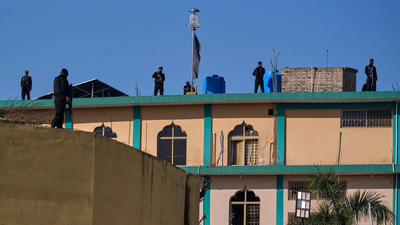HC stays conviction of vax scientist for wife’s suicide; cites ‘national interest’; allows returns to duty | Dehradun News

DEHRADUN: Uttarakhand HC has suspended the conviction and five-year rigorous imprisonment of a vaccine scientist found guilty of abetment to suicide following the death of his wife in 2015.Justice Ravindra Maithani granted the relief to Dr Akash Yadav during the pendency of his appeal, saying his role was “undoubtedly essential for public health and national interest” and his conviction had rendered him ineligible to continue contributing to vaccine programmes.Yadav, a vaccinologist with a PhD in biotechnology from IIT-Kgp, had been working as a senior manager at Indian Immunologicals Limited, a PSU that makes human and veterinary vaccines and plays a critical role in national immunisation efforts. tnnCourt allows scientist to resume duties at IIL Yadav was convicted by a sessions court under IPC section 306 for abetment to suicide but was acquitted under section 304-B (dowry death) and the Dowry Prohibition Act.He married on May 7, 2015. His wife, who was employed at Pantnagar University, was taken to her maternal home by her brother on July 4, 2015, while Yadav was working in Hyderabad. She resumed her duties but died by suicide on Dec 14, 2015. In her suicide note, she stated that her husband would be responsible for her death. Yadav was arrested on May 11, 2017, and after spending more than three months in jail, he got bail on Aug 28. On Jan 21 this year, the sessions judge of Rudrapur sentenced him to five-year RI and a fine of Rs 20,000 under Section 306.After being granted bail, Yadav filed an interim application under section 389(1) of the Code of Criminal Procedure, seeking suspension of his conviction. He submitted that because of the conviction, he had become disqualified from working with Indian Immunologicals Limited (IIL) and was unable to resume his scientific duties. His counsel argued that the case met the criteria for exceptional circumstances, as the conviction had a direct impact on “work of national importance.”Justice Maithani noted that an appellate court can suspend a conviction if failure to do so would result in injustice or irreversible consequences. He cited the Supreme Court rulings in Navjot Singh Sidhu vs State of Punjab (2007) and Rama Narang vs Ramesh Narang (1995) and said that courts must examine whether maintaining the conviction would unfairly affect a person’s professional standing or public interest responsibilities.The bench observed, “This was a greater issue of public health and national interest. In light of the afore-stated reasons, the court was of the view that this was a fit case in which the order of conviction as well as execution of sentence, appealed against, should be suspended.”The high court suspended both the conviction and sentence during the appeal’s pendency, allowing Yadav to resume his duties at IIL.




